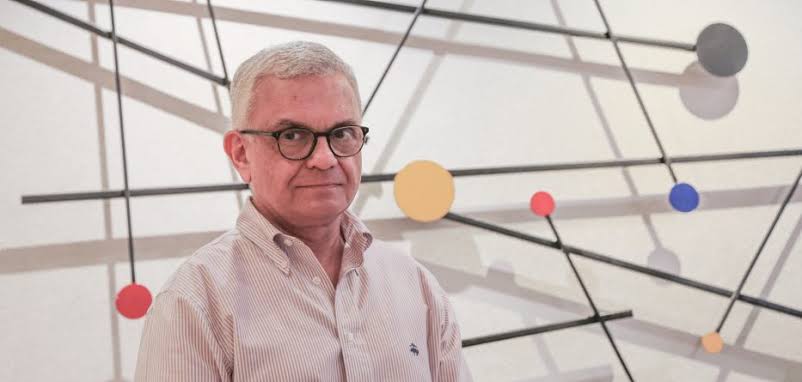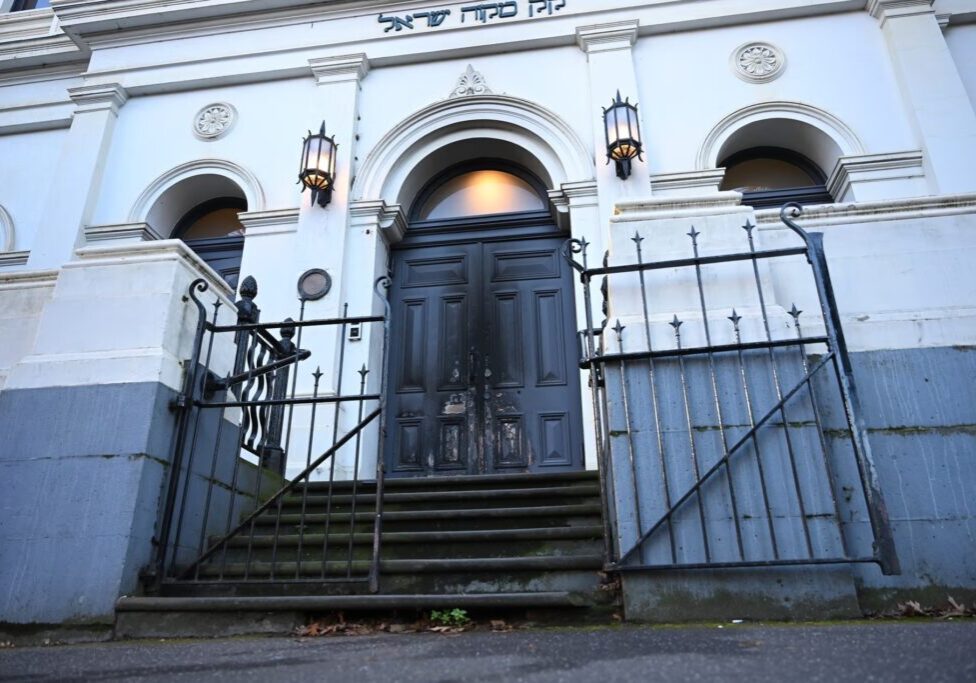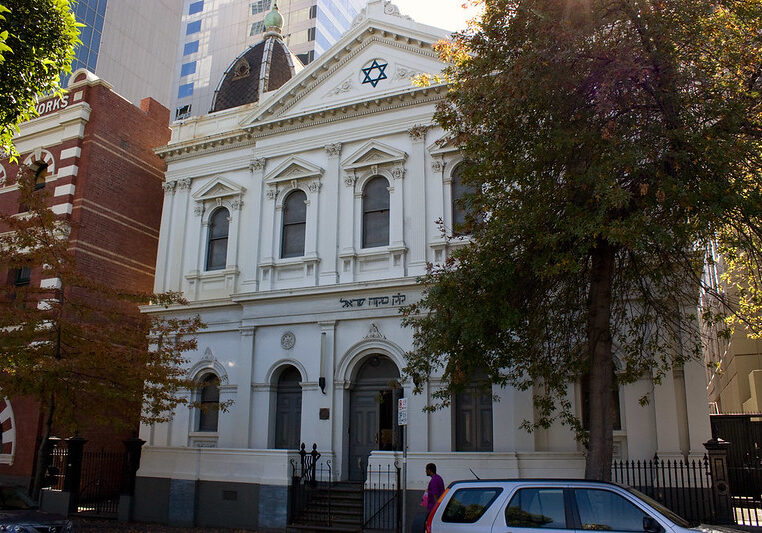Australia/Israel Review
Noted and Quoted – December 2019
Dec 6, 2019 | AIJAC staff

The Corbyn Cycle
The announcement that Britain will hold parliamentary elections in December, which could see Labour leader Jeremy Corbyn moving into 10 Downing Street, saw renewed media attention on his long history of antisemitism controversies.
Herald Sun investigations editor James Campbell dedicated a sizeable proportion of his Nov. 9 column to British Jews’ fear of a Corbyn win, noting the Labour leader has a close affiliation with Hamas “whose founding charter commits to the extermination of every Jew on the planet” and whom he has called “his friends”, as well as the “total inaction on anti-Semites within the Labour Party.” Campbell also pointed out Corbyn’s opposition to NATO, admiration for Venezuela’s Chavez and Cuba’s Castro regimes and acceptance of £20,000 to appear on Iranian TV.
Former foreign minister Alexander Downer warned that Corbyn “has promoted the interests of organisations regarded in the West as terrorists, such as Hamas and Hezbollah. Britain has been an important stabiliser in the Persian Gulf. It has particularly close ties with Saudi Arabia and the United Arab Emirates. These close links would quickly be abandoned by a Corbyn government. That would be very much to the advantage of Iran,” Australian Financial Review (Nov. 4).
Former federal Labor MP Michael Danby wrote “Corbyn is sinister, not a daffy crank. He and the Labour zeitgeist he has empowered have driven out lifelong Jewish members, marginalised the Jewish community and engendered such a climate of hate that there’s an official investigation by the Equality and Human Rights Commission into Corbyn’s party. On the public record are 150 cases of Corbyn candidates or members expressing the foulest anti-Semitic bile, but nothing has been done. No wonder only 7 per cent of Jews will vote Labour; 40 per cent of the 300,000-strong community told pollsters they will emigrate if Corbyn wins,” The Australian (Nov. 6).
In the Spectator Australia (Nov. 9), British writer Tanya Gold opined on her experiences, writing “‘Jew’ is absolutely a loaded word again. I have been told, very recently, that the Rothschilds [banking family] control Europe – at an Alcoholics Anonymous meeting of all places; and by a socialist, naturally. This is normal.”
Anyone but Jeremy
Reporting on the election trail in Britain, News Corp correspondent Richard Ferguson wrote (Nov. 17) about former British Labour MPs and ex-party activists, some of whom are not Jewish, campaigning for left-wing voters to vote “‘anyone but Corbyn’ in order to stop him from taking control” because as one activist quoted said, the “‘The Labour Party is now an institutionally anti-Semitic party.’”
Ferguson noted that “Corbyn himself has been dogged by allegations he is also anti-Semitic,” giving the example from 2012 when he “protested the removal of a street mural showing elderly Jewish men playing Monopoly on the pack of emaciated bodies. He later claimed he did not look closely enough at the building-size artwork”.
Other examples Ferguson noted included “[Corbyn’s] supporting a parliamentary motion calling for Holocaust Memorial Day to be renamed ‘Genocide Memorial Day’. He attended and held a wreath at a ceremony in Tunisia in 2014 which was claimed to be a memorial for the perpetrators of the 1972 Munich massacre, in which 11 members of Israel’s Olympics team were murdered. Mr Corbyn said he was at the ceremony to honour victims of a 1985 Israel air strike. And in 2013, he told a conference that British Zionists had ‘no sense of British irony’.”
Learning the lessons
AIJAC’s Sharyn Mittelman looked into whether teaching Holocaust education in more schools could help prevent further outbreaks of antisemitism, as recently reported in Melbourne schools.
She wrote, “Education on the Holocaust may help counter antisemitism, but it has merit on its own – to teach valuable lessons about racism, mutual respect and democracy,” Herald Sun (Nov. 7).
News Corp. columnist Peta Credlin discussed her own experience of learning about the Holocaust, writing, “What we teach our young people matters and, in the end, will determine what sort of Australia they build and lead in the future. Here, the curriculum is key – how well-rounded they are, how well skilled they are for the careers of the future and how well they understand humanity’s mistakes of the past. Granted, I studied history through to Year 12 and into university, but the subject matter of the Holocaust was something I encountered multiple times… Not so today. Indeed, the only time the genocide of millions of Jews (and others) now appears in the National Curriculum is Year 10 and even then, how much is actually taught is hit and miss, and it’s certainly not mandatory. NSW is the sole state that says teaching of the Holocaust is compulsory but recent research, out of the University of Sydney, into how compulsory it really is in practice showed an alarming 15 percent of schools flout the requirement. Sadly, I didn’t need university research to know we’re missing the mark with the alarming increase in anti-Semitism in our school, the real bellwether of ignorance, in this post-history, post-religious world,” Daily Telegraph (Nov. 10).
Game of Hate
The West Australian (Nov. 4) dedicated three pages, including its cover, to a report into white supremacists – including Australians who use online gaming forums to spread hate, recruit new members and lionise Brenton Tarrant, who perpetrated the Christchurch mosques massacre.
According to the paper’s Annabel Hennessy, “white supremacists have even created a private world on kids’ game Minecraft that mocks the Holocaust – complete with swastikas and gas chambers” and includes “discuss[ing] killing Jews and Muslims”.
One online post from May “stated that Jewish people are ‘harder to kill’ than Muslim people and gave twisted advice for mass shootings. ‘They probably aren’t going to pile up like the ones as Christchurch since (slur for Jewish people) are smarter than muslims (sic).’”
The report cited counter-terrorism experts explaining that a “crackdown on violent content on major social media giants like Facebook had driven some extremists to gaming sites which had ‘nowhere near’ the same amount of pressure placed on them.”
Start me up
Two long feature articles (Nov. 12 and 13) from the Australian newspaper’s John Durie offered fascinating insights into Israel’s reputation as a “start-up nation”.
The Israeli Government offers incentives, he wrote, but “leaves the corporates to help pick the winners with the bureaucrats getting out of the way”.
Durie said he was told the discipline and challenges young Israelis face through compulsory military service, coupled with the “Israeli culture… of ‘question everything’” and greater acceptance of failure, has contributed to the country’s success in the IT field.
It’s not all right
Academic and researcher Peter Kurti warned that “anti-Semitism is also creeping into our politics” through the political left, which has become “increasingly obsessed with anti-Zionism and the existence of the state of Israel”.
According to Kurti, this phenomenon is happening because “many Labor-held seats contain religiously conservative Muslim populations hostile to Israel and sympathetic to the Palestinian cause. Labor’s problem is exacerbated because in some of the seats it needs to hold (such as in western Sydney), there is growing support for the Greens, a party that maintains an intense hostility towards Israel and a very strong commitment to the Palestinians. This has pulled Labor further away from its historically pro-Zionist position to denunciations of not only the Israeli government but also the state of Israel itself.”
He traced the infection of the left all the way back to Karl Marx’s writings on Jews and the former Soviet Union’s misinformation campaign against Israel that “promoted theories of a global conspiracy funded by Jewish money committed to wreaking political and economic havoc in Western countries,” which culminated in the infamous UN resolution of 1975 “declaring Zionism to be ‘a form of racism and racial discrimination’,” which is seen as “the most heinous of the postcolonial world’s moral crimes: racism,” The Australian (Nov. 14).
The Australian editorialised on Kurti’s article in the same edition.
The Australian experience
Two days’ later, the Australian’s Brad Norington filed a large feature on the problem of rising antisemitism and noted instances when it occurred during the 2019 federal election.
“The campaign corflutes of Jewish candidates – Liberal MPs Julian Leeser…and Josh Frydenberg – defaced with dollar signs, devil’s horns and Hitler moustaches. Anti-Semitic emails were directed at another Jewish candidate, Wentworth independent Kerryn Phelps. Dave Sharma, the winning Liberal in the Sydney eastern suburbs seat, is not Jewish but his electorate has Australia’s largest Jewish community. Many of his campaign posters were defaced.”
Norington also focused on Kurti’s claims about the left, antisemitism and anti-Israel activism, giving particular attention to high profile efforts by former foreign minister Bob Carr to shift the ALP’s positions on Israel and recognise a Palestinian state, and citing some of the more extreme allegations Carr has made against Israel over the years.
The piece also quoted NSW Jewish Board of Deputies CEO Vic Alhadeff’s concerning the role of social media in spreading antisemitism.
Rocket Horror picture show
Repeating his gambit from October 2018, Hobart Mercury columnist and pro-Palestinian activist Greg Barns used the Palestinian Film Festival in Tasmania – of which he is the patron – to blame all of Gaza’s woes on “apartheid” Israel (Oct. 28).
Barns said Gaza “is being punished because in 2006 its desperate people dared to vote in a government run by Hamas, an enemy of Israel and vice versa.”
Actually, Hamas won because Palestinians were angry that the ruling Fatah party, which had run the Palestinian Authority for 12 years, was corrupt and stealing international aid.
He said “Gaza is kept poor and desperate by Israel” and blamed declines in the agricultural and fishing industries on the alleged restrictions imposed by Israel.
In fact, Hamas has been diverting aid and resources to build up a military machine that included a domestic rocket and missiles industry, and digging dozens of terror tunnels into Israel, all of which necessitated the imposition of a blockade by Israel and Egypt on Gaza.
A published response in the paper (Oct. 31) from AIJAC’s Allon Lee noted that Hamas’ antisemitism, anti-Israel ideology and ongoing terrorism, as well as the bloody rivalry with Fatah, are the main factors “prevent[ing] Gaza from reaching its potential.”
Lee dismissed the apartheid smear, pointing out that Arab Israelis have the same constitutional rights as Jews and that Palestinians on the West Bank are ruled by their own, at least initially democratically-elected, leadership.
Calling Israel an apartheid state, he said, was “a red herring” to divert attention from the refusal of the Palestinian Authority to accept any of the three offers of Palestinian statehood in almost all of the disputed territories that Israel has made, or to even hold negotiations, he argued.
Fordow baggin’
The Australian warned that Iran’s incremental and “unilateral” breaches of its JCPOA nuclear deal commitments, particularly its resumption of uranium enrichment at its underground Fordow plant, which violates “one of the Obama deal’s key provisions… raises serious questions for Australia.”
The editorial recalled that “Foreign Minister Marise Payne said recently that we continued to support the deal. But Scott Morrison said last year that Australia would ‘keep the option’ of additional autonomous sanctions. Coinciding with this week’s 40th anniversary of the storming of the US embassy in Tehran, the news that Fordow was back in business was a reminder of why Iran’s unrelenting delinquency must be challenged.”
Elsewhere, the Guardian Australia (Nov. 4) ran a searing editorial on Iran’s regional interference from The Observer, its UK sister paper. The paper questioned Iranian leaders’ protestations that “they have no wish to recreate the Persian empire in the present-day Middle East… That is not how it looks to many people in Lebanon, where Iran’s close financial and military links to the country’s leading Shia political organisation, Hezbollah, became the focus of angry anti-government street protests… The benign view of Iran as friendly neighbourhood helper is also hard to square with its support for the Houthi rebellion in Yemen, where the death toll in four years of war has reached 100,000.”
The editorial moved onto the Islamic Revolutionary Guard Corps’ presence in Iraq, also being rocked by mass protests along with mass killing of protestors by security forces, and said the West has a responsibility not to stand by, arguing, “if this carnage were occurring in Hong Kong or Barcelona, there would be a deafening uproar.”
ABC, HRW and BDS
In October 2018, when Human Rights Watch (HRW) released a landmark report into 25 years of abuse and torture committed by Hamas in Gaza and Fatah-run Palestinian Authority, none of the ABC’s radio, TV or online platforms covered it.
In contrast, ABC Radio National “Breakfast” (Nov. 7) ran as its lead story the Israeli Supreme Court upholding a deportation notice issued against HRW’s Israel/Palestinian Territories Director Omar Shakir after his visa was not renewed under a 2017 law banning the issuing of visas to activists of the boycott, sanctions and divestment (BDS) movement. Naturally, Shakir alone was interviewed, with no other voice or opinion offered.
Despite the many examples on Shakir’s Twitter account boasting of his BDS support before and after joining HRW, host Hamish Macdonald failed to cite or ask him about even one instance. Instead the program became a vehicle for HRW’s narrative that Israel is trying to silence human rights advocates and has thus joined the ranks of human rights abusers like Egypt and Syria.
When Macdonald straight out asked Shakir “so, what is your position on the boycott movement against Israel?”, the activist said, “Human Rights Watch has never and nor I as its representative call for boycotts of Israel. We’ve never called for a consumer boycott of those companies much less of Israel proper.” This is a complete misrepresentation – at HRW, Shakir has spearheaded campaigns for divestment against Israel banks, for Airbnb to boycott Jews living in settlements, and for Israel to be kicked out of the global soccer federation FIFA – but went unchallenged.
Absurdly, Shakir called his imminent deportation “the lowest moment in Israel’s modern history when it comes to the kind of assault on human rights advocates” and denounced Israel’s Supreme Court, which is fiercely independent, as a mere rubber “stamp on the government’s clampdown on human rights advocacy.”
In fact, the Supreme Court previously overruled a deportation order for another BDS activist because the petitioner had renounced her previous support for BDS, which Shakir refused to do when given the option.
Macdonald not only remained silent in response to Shakir’s wild claims but claimed himself that in his experience “it has always been quite difficult for journalists to work in Israel.”
Israel actually has one the world’s highest concentrations of foreign journalists, and probably the highest on a per capita basis – so it is obviously not that hard.
Moreover, HRW as an organisation was not expelled from Israel, and has other activists there – Shakir was simply denied a renewal of his visa.
Would Jew believe it?
The Daily Telegraph’s “Today in History” page marked Remembrance Day on Nov. 11, and discussed how Germany’s surrender in 1918 affected Adolf Hitler and his subsequent rise to power, but bizarrely omitted any reference to his belief that Jews were responsible for the loss.
The article by the paper’s history editor, Troy Lennon, said Hitler “reacted to the news with dismay, sharing the delusion of many German soldiers that they had not been defeated in battle. He chose to believe they had been ‘stabbed in the back’ by politicians and communists who caved-in to external political pressure to surrender. His memory of Germany’s surrender fuelled his rise to power and shaped his revenge on the French when the Nazis defeated their army in World War II.”
The “stab in the back” conspiracy was, as the article noted, popularised by General Erich Ludendorff, commander of the German forces in the last part of the war, who “blamed civilians, particularly the politicians and communist revolutionaries, for failing to support their military.”
But what the article did not include was that Ludendorff blamed Jews as the main culprits amongst the players supposedly responsible for Germany’s defeat, which Hitler echoed in his subsequent writings and speeches.
Tags: Australia, Media/ Academia






